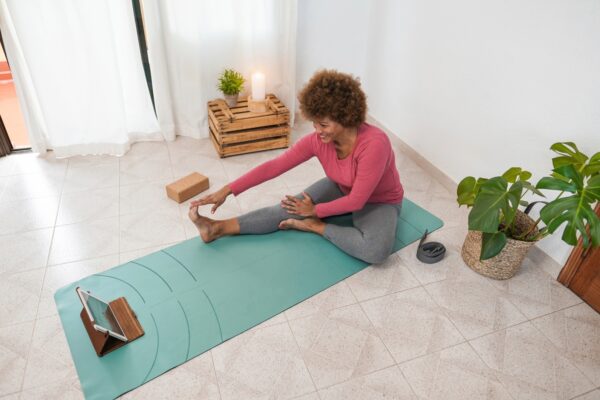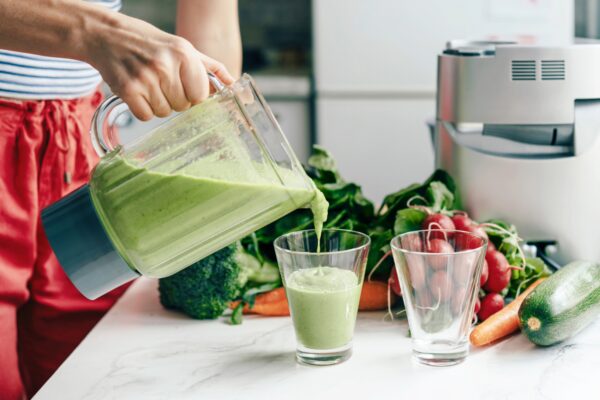Why Wellness Is Becoming a Daily Ritual for Gen Z & Millennials
Wellness used to be something people turned to when life got overwhelming—like booking a massage after a long week or starting a diet before summer. But for Gen Z and Millennials, wellness has transformed into a daily ritual. It's no longer just about occasional self-care; it's a lifestyle that supports mental, emotional, and physical health every day.
This shift is happening during a time of high economic stress. Student loans, rising rent, and uncertain job markets are heavy realities. Still, younger generations are finding ways to create personalized wellness routines that help them stay balanced.
For them, wellness is less about luxury and more about resilience.
Economic Stress & the Shift Toward Affordable Self-Care
Economic pressure plays a significant role in shaping how Gen Z and Millennials practice wellness. With inflation and job instability, many can't afford expensive retreats, high-end supplements, or luxury gym memberships.
Instead, they focus on affordable self-care habits that can be done at home or outdoors.
- Meditation apps instead of pricey therapy sessions.
- Home workouts, yoga flows, and walking pads replacing boutique studios.
- Cooking plant-based meals instead of eating out.

This resourceful approach shows that wellness amid economic stress doesn't have to break the bank. In fact, building small daily habits—like stretching in the morning, journaling at night, or brewing herbal tea—helps create structure, calm, and consistency.
Personalization: Building Wellness Routines That Fit Individual Lifestyles
One of the biggest reasons Gen Z and Millennials' wellness routines stand out is how personalized they've become. Unlike previous generations who followed one-size-fits-all trends, younger people mix and match practices that fit their personalities, schedules, and budgets.
Thanks to apps, fitness trackers, and social media, people can experiment with different rituals until they find what feels right. Daily wellness habits include:
- Mindfulness & Meditation – Short sessions for stress management.
- Movement Breaks – Stretching or light exercise between work or classes.
- Journaling – Reflection for mental clarity and emotional health.
- Nutrition Rituals – Smoothies, plant-based meals, or mindful eating.
- Sleep Hygiene – Screen-free evenings, calming teas, and consistent bedtime routines.
By making personalized wellness routines, younger generations are showing that wellness is not about perfection—it's about consistency and authenticity.
Community & Digital Influence in Wellness Trends
If you scroll through TikTok or Instagram, it's clear that digital communities play a significant role in shaping wellness trends among Gen Z and Millennials. From "Hot Girl Walks" to "Sleep Reset Challenges," social media has made wellness accessible and shareable.

These online communities provide:
- Accountability – People post their routines, progress, and challenges.
- Inspiration – New ideas for workouts, nutrition, or mindfulness.
- Connection – A sense of belonging in a stressful, digital-first world.
While some criticize social media for fueling comparison, it's also given rise to digital wellness communities that encourage collective healing and self-care. For many, joining an online group chat or following a wellness influencer provides the support they don't always get from work or family.
Nature-Rooted and Mindful Practices as Stress Relief
Alongside tech-driven trends, many younger people are also looking for nature-rooted wellness practices to counterbalance digital overload. With so much of life happening online, Gen Z and Millennials are finding comfort in simple, mindful, and natural rituals.
Some popular mindful wellness practices include:
- Spending time outdoors—walking, hiking, or grounding barefoot in grass.
- Using herbal remedies like teas, tinctures, or aromatherapy.
- Practicing slow, intentional activities like gardening or cooking.
These practices are often low-cost yet powerful for mental clarity. By reconnecting with nature, younger generations are finding ways to reduce anxiety and feel more balanced, even in the face of economic uncertainty.
The Future of Wellness as a Lifestyle for Younger Generations
The future of wellness for Gen Z and Millennials will likely focus on sustainability, balance, and accessibility.

Unlike past trends, where wellness was marketed as a luxury, younger generations are reshaping it into a daily lifestyle practice.
Trends to watch:
- Work-Life Balance – Wellness will be integrated into workspaces, with more employers offering mindfulness breaks and flexible work schedules.
- Sustainable Living – Eco-friendly products, plant-based diets, and minimalist approaches to wellness.
- Holistic Health – A deeper blending of mental, emotional, and physical care.
In this way, wellness lifestyle habits won't just be about stress relief—they'll become tools for long-term resilience and community health.
The Ritual of Wellness as Resilience
For Gen Z and Millennials, wellness is no longer a side activity. It's a daily ritual, shaped by economic stress, personalized routines, and influences rooted in both digital and natural environments.
In tough financial times, these generations are proving that wellness doesn't have to cost much—it just needs intention and consistency. By making wellness a lifestyle, they are creating resilience in a world that often feels uncertain.
If you're looking to start your own journey, remember: wellness doesn't need to be overwhelming. Begin with small, daily wellness habits—like a five-minute meditation, a mindful walk, or a nourishing meal. Over time, these rituals build not just health, but also hope.



